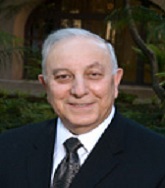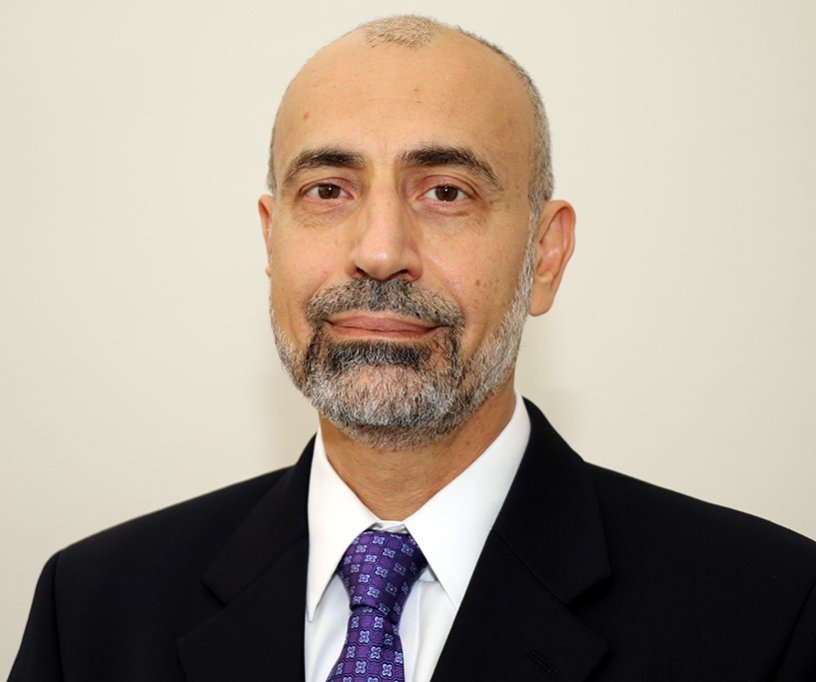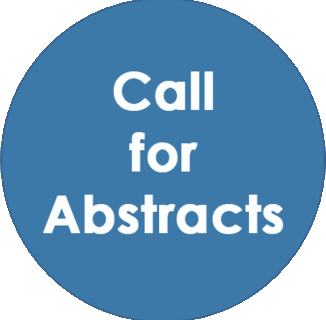Major Sessions
Session 01: Mental health
Mental health is integral to our emotional, psychological, and social well-being, influencing how we think, feel, and behave. It is essential throughout all stages of life, from childhood to adulthood. Good mental health helps individuals manage stress, build relationships, and make healthy decisions. On the other hand, poor mental health can result in disorders such as depression, anxiety, and schizophrenia, which can severely affect daily functioning and overall well-being.
Related Conferences: Psychiatry Conferences | Psychology Conferences | European Psychiatry Conferences | Top Psychotherapy Conferences | Mental Health Conferences | Psychosomatic Medicine Conferences | Mental Illness Conferences | Psychiatrist Meetings | American Psychiatry Conferences
Worldwide Associations and Societies: Anxiety and Depression Association of America (ADAA) | National Alliance on Mental Illness (NAMI) | American Foundation for Suicide Prevention (AFSP) | Center for Workplace Mental Health | Academy for Eating Disorders | Academy of Counseling Psychology | Aelation Lifelong Learning Research Council | American Academy of Child and Adolescent Psychiatry | American Academy of Psychiatry and the Law
Session 02: Neuropsychiatry
Neuropsychiatry is a medical field that examines the intersection of neurological and psychiatric conditions, focusing on the impact of brain disorders on behaviour and mental health. It addresses conditions such as schizophrenia, bipolar disorder, and cognitive impairments associated with neurological diseases. Neuropsychiatrists employ a multidisciplinary approach, integrating neurological and psychiatric knowledge to diagnose and treat complex disorders.
Related Conferences: Psychiatry Conferences | Psychology Conferences | European Psychiatry Conferences | Top Psychotherapy Conferences | Mental Health Conferences | Psychosomatic Medicine Conferences | Mental Illness Conferences | Psychiatrist Meetings | American Psychiatry Conferences
Worldwide Associations and Societies: Anxiety and Depression Association of America (ADAA) | National Alliance on Mental Illness (NAMI) | American Foundation for Suicide Prevention (AFSP) | Center for Workplace Mental Health | Academy for Eating Disorders | Academy of Counseling Psychology | Aelation Lifelong Learning Research Council | American Academy of Child and Adolescent Psychiatry | American Academy of Psychiatry and the Law
Session 03: Bipolar disorder
Bipolar disorder is a mental health condition characterized by dramatic mood swings that include emotional highs (mania or hypomania) and lows (depression), which significantly disrupt daily life, relationships, and work. During manic episodes, individuals experience elevated mood, increased energy, and impulsive behaviour, while depressive episodes are marked by intense sadness, hopelessness, and low energy. Mixed episodes, where symptoms of both mania and depression occur simultaneously, can also be present.
Related Conferences: Psychiatry Conferences | Psychology Conferences | European Psychiatry Conferences | Top Psychotherapy Conferences | Mental Health Conferences | Psychosomatic Medicine Conferences | Mental Illness Conferences | Psychiatrist Meetings | American Psychiatry Conferences
Worldwide Associations and Societies: Anxiety and Depression Association of America (ADAA) | National Alliance on Mental Illness (NAMI) | American Foundation for Suicide Prevention (AFSP) | Center for Workplace Mental Health | Academy for Eating Disorders | Academy of Counseling Psychology | Aelation Lifelong Learning Research Council | American Academy of Child and Adolescent Psychiatry | American Academy of Psychiatry and the Law
Session 04: Women’s Mental Health
Women's mental health encompasses the distinct psychological, emotional, and social factors that impact women throughout their lives. Biological experiences such as menstruation, pregnancy, and menopause, along with societal pressures and gender-specific roles, contribute to mental health challenges. Common issues include depression, anxiety, eating disorders, and postpartum depression. Moreover, gender-based violence, discrimination, and unequal access to healthcare worsen these challenges.
Related Conferences: Psychiatry Conferences | Psychology Conferences | European Psychiatry Conferences | Top Psychotherapy Conferences | Mental Health Conferences | Psychosomatic Medicine Conferences | Mental Illness Conferences | Psychiatrist Meetings | American Psychiatry Conferences
Worldwide Associations and Societies: Anxiety and Depression Association of America (ADAA) | National Alliance on Mental Illness (NAMI) | American Foundation for Suicide Prevention (AFSP) | Center for Workplace Mental Health | Academy for Eating Disorders | Academy of Counseling Psychology | Aelation Lifelong Learning Research Council | American Academy of Child and Adolescent Psychiatry | American Academy of Psychiatry and the Law
Session 05: Addiction/Substance Use Disorder
The extensive use of drugs and alcohol poses serious risks and consequences, affecting about 25 million Americans directly and another 40 million indirectly. Society faces significant economic costs due to reduced productivity, property damage, and increased healthcare expenses. Annually, alcoholism impacts 16 million adults and nearly 300,000 children. Additionally, approximately 21.6 million Americans aged 12 and older struggle with addiction to various substances, including opiates and psychostimulants.
Related Conferences: Psychiatry Conferences | Psychology Conferences | European Psychiatry Conferences | Top Psychotherapy Conferences | Mental Health Conferences | Psychosomatic Medicine Conferences | Mental Illness Conferences | Psychiatrist Meetings | American Psychiatry Conferences
Worldwide Associations and Societies: Anxiety and Depression Association of America (ADAA) | National Alliance on Mental Illness (NAMI) | American Foundation for Suicide Prevention (AFSP) | Center for Workplace Mental Health | Academy for Eating Disorders | Academy of Counseling Psychology | Aelation Lifelong Learning Research Council | American Academy of Child and Adolescent Psychiatry | American Academy of Psychiatry and the Law
Session 06: Personality disorders
Personality disorders are mental health conditions marked by enduring, maladaptive patterns of thinking, behaviour, and relationships that deviate significantly from cultural norms. These patterns can cause distress or impairment in various life areas. Common examples include borderline, narcissistic, and antisocial personality disorders. Treatment usually involves psychotherapy, such as cognitive-behavioural therapy, to help individuals recognize and change their behavioural patterns and enhance their functioning.
Related Conferences: Psychiatry Conferences | Psychology Conferences | European Psychiatry Conferences | Top Psychotherapy Conferences | Mental Health Conferences | Psychosomatic Medicine Conferences | Mental Illness Conferences | Psychiatrist Meetings | American Psychiatry Conferences
Worldwide Associations and Societies: Anxiety and Depression Association of America (ADAA) | National Alliance on Mental Illness (NAMI) | American Foundation for Suicide Prevention (AFSP) | Center for Workplace Mental Health | Academy for Eating Disorders | Academy of Counseling Psychology | Aelation Lifelong Learning Research Council | American Academy of Child and Adolescent Psychiatry | American Academy of Psychiatry and the Law
Session 07: Dissociation and Dissociative Disorders
Dissociation is a psychological phenomenon where an individual experiences a detachment from their thoughts, emotions, or sense of identity, often as a defence mechanism against trauma or extreme stress. Dissociative Disorders, which include dissociative amnesia, dissociative identity disorder (DID), and depersonalization/derealisation disorder, are mental health conditions marked by severe and disruptive dissociative processes, leading to significant impairments in daily functioning.
Related Conferences: Psychiatry Conferences | Psychology Conferences | European Psychiatry Conferences | Top Psychotherapy Conferences | Mental Health Conferences | Psychosomatic Medicine Conferences | Mental Illness Conferences | Psychiatrist Meetings | American Psychiatry Conferences
Worldwide Associations and Societies: Anxiety and Depression Association of America (ADAA) | National Alliance on Mental Illness (NAMI) | American Foundation for Suicide Prevention (AFSP) | Center for Workplace Mental Health | Academy for Eating Disorders | Academy of Counseling Psychology | Aelation Lifelong Learning Research Council | American Academy of Child and Adolescent Psychiatry | American Academy of Psychiatry and the Law
Session 08: Depression and anxiety disorders
Depression and anxiety disorders are prevalent mental health conditions that profoundly affect daily life and well-being. Depression manifests as persistent sadness, loss of interest in activities, changes in appetite or sleep patterns, and feelings of worthlessness or guilt. Anxiety disorders are characterized by excessive worry, fear, or panic, often accompanied by physical symptoms such as increased heart rate, sweating, and trembling. These conditions can coexist, intensifying each other’s symptoms.
Related Conferences: Psychiatry Conferences | Psychology Conferences | European Psychiatry Conferences | Top Psychotherapy Conferences | Mental Health Conferences | Psychosomatic Medicine Conferences | Mental Illness Conferences | Psychiatrist Meetings | American Psychiatry Conferences
Worldwide Associations and Societies: Anxiety and Depression Association of America (ADAA) | National Alliance on Mental Illness (NAMI) | American Foundation for Suicide Prevention (AFSP) | Center for Workplace Mental Health | Academy for Eating Disorders | Academy of Counseling Psychology | Aelation Lifelong Learning Research Council | American Academy of Child and Adolescent Psychiatry | American Academy of Psychiatry and the Law
Session 09: Child and Adolescent Mental Health
Child and adolescent mental health encompasses the emotional, psychological, and social well-being of young people, influencing their ability to learn, form relationships, and handle daily challenges. Issues in this area can range from anxiety and depression to behavioural disorders and learning difficulties. Early identification and intervention are crucial, as mental health problems during these formative years can affect overall development and academic performance.
Related Conferences: Psychiatry Conferences | Psychology Conferences | European Psychiatry Conferences | Top Psychotherapy Conferences | Mental Health Conferences | Psychosomatic Medicine Conferences | Mental Illness Conferences | Psychiatrist Meetings | American Psychiatry Conferences
Worldwide Associations and Societies: Anxiety and Depression Association of America (ADAA) | National Alliance on Mental Illness (NAMI) | American Foundation for Suicide Prevention (AFSP) | Center for Workplace Mental Health | Academy for Eating Disorders | Academy of Counseling Psychology | Aelation Lifelong Learning Research Council | American Academy of Child and Adolescent Psychiatry | American Academy of Psychiatry and the Law
Session 10: Obsessive-Compulsive Disorder (OCD)
Obsessive-Compulsive Disorder (OCD) is a mental health condition marked by persistent, intrusive thoughts (obsessions) and repetitive behaviours or rituals (compulsions) performed to alleviate the anxiety these thoughts provoke or to prevent perceived dangers. People with OCD often feel driven to carry out these rituals despite recognizing their irrationality. This condition can greatly disrupt daily life and diminish quality of life. Treatment generally includes therapy, medication, and cognitive-behavioural techniques designed to lessen obsessions and compulsions, thereby enhancing overall well-being.
Related Conferences: Psychiatry Conferences | Psychology Conferences | European Psychiatry Conferences | Top Psychotherapy Conferences | Mental Health Conferences | Psychosomatic Medicine Conferences | Mental Illness Conferences | Psychiatrist Meetings | American Psychiatry Conferences
Worldwide Associations and Societies: Anxiety and Depression Association of America (ADAA) | National Alliance on Mental Illness (NAMI) | American Foundation for Suicide Prevention (AFSP) | Center for Workplace Mental Health | Academy for Eating Disorders | Academy of Counseling Psychology | Aelation Lifelong Learning Research Council | American Academy of Child and Adolescent Psychiatry | American Academy of Psychiatry and the Law
Session 11: Schizophrenia
Schizophrenia is a severe disorder that impacts a person's thoughts, feelings, and behaviors. Individuals with schizophrenia may struggle to differentiate between reality and imagination, may appear unresponsive or withdrawn, and often find it challenging to express emotions appropriately in social settings. Contrary to common misconceptions, schizophrenia is not the same as split or multiple personality disorder. Most people with schizophrenia are not violent and do not pose a threat to others.
Related Conferences: Psychiatry Conferences | Psychology Conferences | European Psychiatry Conferences | Top Psychotherapy Conferences | Mental Health Conferences | Psychosomatic Medicine Conferences | Mental Illness Conferences | Psychiatrist Meetings | American Psychiatry Conferences
Worldwide Associations and Societies: Anxiety and Depression Association of America (ADAA) | National Alliance on Mental Illness (NAMI) | American Foundation for Suicide Prevention (AFSP) | Center for Workplace Mental Health | Academy for Eating Disorders | Academy of Counseling Psychology | Aelation Lifelong Learning Research Council | American Academy of Child and Adolescent Psychiatry | American Academy of Psychiatry and the Law
Session 12: Post-Traumatic Stress Disorder (PTSD)
Post-Traumatic Stress Disorder (PTSD) is a mental health condition arising from experiencing or witnessing traumatic events, such as combat, natural disasters, or assaults. Symptoms commonly include intrusive memories, flashbacks, nightmares, and intense emotional distress. Those with PTSD often exhibit hypervigilance, avoidance of trauma reminders, and negative shifts in mood and cognition, which can severely disrupt daily functioning and quality of life.
Related Conferences: Psychiatry Conferences | Psychology Conferences | European Psychiatry Conferences | Top Psychotherapy Conferences | Mental Health Conferences | Psychosomatic Medicine Conferences | Mental Illness Conferences | Psychiatrist Meetings | American Psychiatry Conferences
Worldwide Associations and Societies: Anxiety and Depression Association of America (ADAA) | National Alliance on Mental Illness (NAMI) | American Foundation for Suicide Prevention (AFSP) | Center for Workplace Mental Health | Academy for Eating Disorders | Academy of Counseling Psychology | Aelation Lifelong Learning Research Council | American Academy of Child and Adolescent Psychiatry | American Academy of Psychiatry and the Law
Session 13: Multi-Infarct Dementia (MID)
Multi-Infarct Dementia (MID), also referred to as vascular dementia, arises from multiple small strokes or infarcts in the brain that damage cognitive function. These strokes result from blockages in small blood vessels that supply the brain, leading to the death of brain tissue. Symptoms of MID may include memory loss, language and communication difficulties, impaired judgment, and mood or behavioural changes. Risk factors for developing MID include hypertension, diabetes, smoking, and high cholesterol.
Related Conferences: Psychiatry Conferences | Psychology Conferences | European Psychiatry Conferences | Top Psychotherapy Conferences | Mental Health Conferences | Psychosomatic Medicine Conferences | Mental Illness Conferences | Psychiatrist Meetings | American Psychiatry Conferences
Worldwide Associations and Societies: Anxiety and Depression Association of America (ADAA) | National Alliance on Mental Illness (NAMI) | American Foundation for Suicide Prevention (AFSP) | Center for Workplace Mental Health | Academy for Eating Disorders | Academy of Counseling Psychology | Aelation Lifelong Learning Research Council | American Academy of Child and Adolescent Psychiatry | American Academy of Psychiatry and the Law
Session 14: Prevention and rehabilitation
Prevention and rehabilitation are essential components in addressing substance abuse and addiction. Prevention strategies focus on education, community programs, and early intervention to reduce the initiation and misuse of drugs and alcohol. Rehabilitation involves comprehensive treatment plans tailored to individual needs, incorporating medical care, counselling, and support services to help individuals overcome addiction and achieve long-term recovery.
Related Conferences: Psychiatry Conferences | Psychology Conferences | European Psychiatry Conferences | Top Psychotherapy Conferences | Mental Health Conferences | Psychosomatic Medicine Conferences | Mental Illness Conferences | Psychiatrist Meetings | American Psychiatry Conferences
Worldwide Associations and Societies: Anxiety and Depression Association of America (ADAA) | National Alliance on Mental Illness (NAMI) | American Foundation for Suicide Prevention (AFSP) | Center for Workplace Mental Health | Academy for Eating Disorders | Academy of Counseling Psychology | Aelation Lifelong Learning Research Council | American Academy of Child and Adolescent Psychiatry | American Academy of Psychiatry and the Law
Session 15: Social Anxiety Disorder
Social Anxiety Disorder is a mental health condition characterized by an intense, persistent fear of social situations where one may be judged, embarrassed, or humiliated. This condition can lead to significant distress and avoidance of social interactions, affecting daily functioning and quality of life. Individuals with social anxiety often experience physical symptoms such as sweating, trembling, or a rapid heartbeat in social settings. The disorder can impair personal and professional relationships, as well as academic or work performance.
Related Conferences: Psychiatry Conferences | Psychology Conferences | European Psychiatry Conferences | Top Psychotherapy Conferences | Mental Health Conferences | Psychosomatic Medicine Conferences | Mental Illness Conferences | Psychiatrist Meetings | American Psychiatry Conferences
Worldwide Associations and Societies: Anxiety and Depression Association of America (ADAA) | National Alliance on Mental Illness (NAMI) | American Foundation for Suicide Prevention (AFSP) | Center for Workplace Mental Health | Academy for Eating Disorders | Academy of Counseling Psychology | Aelation Lifelong Learning Research Council | American Academy of Child and Adolescent Psychiatry | American Academy of Psychiatry and the Law
Session 16: Sleep disorders
Sleep disorders encompass a range of conditions that impair the ability to sleep well on a regular basis, affecting overall health and quality of life. Common sleep disorders include insomnia, characterized by difficulty falling or staying asleep; where breathing repeatedly stops and starts; restless legs syndrome, which causes an uncontrollable urge to move the legs; and narcolepsy, marked by excessive daytime sleepiness and sudden sleep attacks. These disorders can result from various factors such as stress, medical conditions, lifestyle choices, and genetic predispositions.
Related Conferences: Psychiatry Conferences | Psychology Conferences | European Psychiatry Conferences | Top Psychotherapy Conferences | Mental Health Conferences | Psychosomatic Medicine Conferences | Mental Illness Conferences | Psychiatrist Meetings | American Psychiatry Conferences
Worldwide Associations and Societies: Anxiety and Depression Association of America (ADAA) | National Alliance on Mental Illness (NAMI) | American Foundation for Suicide Prevention (AFSP) | Center for Workplace Mental Health | Academy for Eating Disorders | Academy of Counseling Psychology | Aelation Lifelong Learning Research Council | American Academy of Child and Adolescent Psychiatry | American Academy of Psychiatry and the Law
Session 17: Suicide and Self harm
Suicide and self-harm are critical mental health issues that involve individuals intentionally causing injury to themselves, with suicide being an attempt to end one's life and self-harm often serving as a coping mechanism for overwhelming emotional pain. Both behaviours are associated with underlying mental health conditions such as depression, anxiety, and trauma. They can significantly impact an individual's physical health and quality of life, as well as cause distress to their loved ones. Effective prevention and intervention strategies include mental health support, therapy, medication, and crisis intervention services aimed at addressing the root causes and providing coping mechanisms for emotional distress.
Related Conferences: Psychiatry Conferences | Psychology Conferences | European Psychiatry Conferences | Top Psychotherapy Conferences | Mental Health Conferences | Psychosomatic Medicine Conferences | Mental Illness Conferences | Psychiatrist Meetings | American Psychiatry Conferences
Worldwide Associations and Societies: Anxiety and Depression Association of America (ADAA) | National Alliance on Mental Illness (NAMI) | American Foundation for Suicide Prevention (AFSP) | Center for Workplace Mental Health | Academy for Eating Disorders | Academy of Counseling Psychology | Aelation Lifelong Learning Research Council | American Academy of Child and Adolescent Psychiatry | American Academy of Psychiatry and the Law
Session 18: Neurotechnology and Brain Stimulation
Neurotechnology and brain stimulation are advancing the field of mental health by offering innovative ways to modulate brain activity and treat neurological and psychiatric conditions. Techniques such as transcranial magnetic stimulation (TMS) and deep brain stimulation (DBS) involve applying targeted electrical or magnetic pulses to specific brain regions to alter neural activity and alleviate symptoms of disorders like depression, anxiety, and Parkinson's disease. Neurotechnology also includes brain-computer interfaces and neurofeedback systems that monitor and adjust brain function in real-time.
Related Conferences: Psychiatry Conferences | Psychology Conferences | European Psychiatry Conferences | Top Psychotherapy Conferences | Mental Health Conferences | Psychosomatic Medicine Conferences | Mental Illness Conferences | Psychiatrist Meetings | American Psychiatry Conferences
Worldwide Associations and Societies: Anxiety and Depression Association of America (ADAA) | National Alliance on Mental Illness (NAMI) | American Foundation for Suicide Prevention (AFSP) | Center for Workplace Mental Health | Academy for Eating Disorders | Academy of Counseling Psychology | Aelation Lifelong Learning Research Council | American Academy of Child and Adolescent Psychiatry | American Academy of Psychiatry and the Law
Session 19: Digital Mental Health Innovations
Digital mental health innovations are transforming how mental health care is delivered and accessed by utilizing technology to provide support and treatment. These innovations include mobile apps for self-management and monitoring, online therapy platforms that connect individuals with licensed therapists, and virtual reality tools for exposure therapy. Such technologies offer the advantage of increased accessibility and convenience, enabling users to receive support remotely and at any time.
Related Conferences: Psychiatry Conferences | Psychology Conferences | European Psychiatry Conferences | Top Psychotherapy Conferences | Mental Health Conferences | Psychosomatic Medicine Conferences | Mental Illness Conferences | Psychiatrist Meetings | American Psychiatry Conferences
Worldwide Associations and Societies: Anxiety and Depression Association of America (ADAA) | National Alliance on Mental Illness (NAMI) | American Foundation for Suicide Prevention (AFSP) | Center for Workplace Mental Health | Academy for Eating Disorders | Academy of Counseling Psychology | Aelation Lifelong Learning Research Council | American Academy of Child and Adolescent Psychiatry | American Academy of Psychiatry and the Law
Session 20: Artificial Intelligence in Mental Health
Artificial Intelligence (AI) is transforming mental health care by improving diagnostic precision, customizing treatment, and enhancing accessibility. AI tools can process extensive data from medical records and social media to detect patterns and forecast mental health concerns with greater accuracy. Through machine learning algorithms, personalized treatment plans and interventions can be developed to meet individual needs. AI-driven chatbots and virtual therapists offer prompt support, making mental health services more accessible.
Related Conferences: Psychiatry Conferences | Psychology Conferences | European Psychiatry Conferences | Top Psychotherapy Conferences | Mental Health Conferences | Psychosomatic Medicine Conferences | Mental Illness Conferences | Psychiatrist Meetings | American Psychiatry Conferences
Worldwide Associations and Societies: Anxiety and Depression Association of America (ADAA) | National Alliance on Mental Illness (NAMI) | American Foundation for Suicide Prevention (AFSP) | Center for Workplace Mental Health | Academy for Eating Disorders | Academy of Counseling Psychology | Aelation Lifelong Learning Research Council | American Academy of Child and Adolescent Psychiatry | American Academy of Psychiatry and the Law
Market Analysis
The GLOBAL MENTAL HEALTH 2025 market, valued at $383.31 billion in 2020, is projected to reach $537.97 billion by 2030, with a CAGR of 3.5% from 2021 to 2030. Market growth is driven by an increase in the prevalence of mental disorders, a rising geriatric population, and expanded awareness programs about mental health. Additionally, increased education and advocacy efforts aimed at reducing stigma and promoting human rights contribute to market expansion. However, the rising costs of mental health programs and substance abuse treatments are anticipated to impede growth.
Mental health problems are marked by a lack of positive emotions, low mood, and various cognitive, physical, emotional, and behavioural symptoms, affecting 1 in 5 individuals. Contributing factors include genetics, stress, and brain chemistry. According to the WHO, over 264 million people of all ages experienced depression in 2020. Depression is a leading cause of disability worldwide and significantly contributes to the global burden of disease.
Dynamics of the Mental Health Market
Individuals with pre-existing mental health conditions face heightened risks due to COVID-19, including worsened symptoms and disruptions in treatment and support services. This negatively impacts the market, but some countries are countering these effects by investing in digital solutions and increasing mental health professionals, which is expected to have a positive impact during the forecast period.
Segmentation and Analysis of the Mental Health Market
The mental health market is segmented by disorder, services, age group, and region. Disorders include schizophrenia, alcohol use disorders, bipolar disorder, depression, anxiety, post-traumatic stress disorder, substance abuse disorders, eating disorders, and other disorders. Services are categorized into emergency mental health services, outpatient counseling, home-based treatment services, inpatient hospital treatment services, and other services. The age groups considered are pediatric, adult, and geriatric. Regionally, the market is analyzed across North America (including the U.S., Canada, and Mexico), Europe (covering Germany, France, the UK, Italy, Spain, and the rest of Europe), Asia-Pacific (including Japan, China, India, Australia, and the rest of Asia-Pacific), and LAMEA (comprising Brazil, South Africa, Saudi Arabia, and the rest of LAMEA).

Past Conference Report
GLOBAL MENTAL HEALTH 2023
Conference Series is excited to announce the “5th International Congress on Mental Health” (GLOBAL MENTAL HEALTH 2023), which took place on May 04-05, 2023, in London, UK. GLOBAL MENTAL HEALTH 2023 brought together outstanding speakers who shared their knowledge and discussed the latest topics in Mental Health. The event, hosted by Conference Series, attracted young researchers, business delegates, and talented students from over 25 countries. With the theme “From Resilience to Recovery,” the conference focused on subjects like Obsessive-Compulsive Disorder (OCD), Schizophrenia, Dissociation and Dissociative Disorders, and Generalized Anxiety Disorder (GAD). The shared knowledge and ideas will help create collaborations and advance scientific progress in Mental Health.
The Organizing Committee thanks Huang Wei Ling, Medical Acupuncture and Pain Management Clinic from the Brazil, for moderating and ensuring the smooth running of GLOBAL MENTAL HEALTH 2023. The conference began with an opening ceremony followed by lectures from Honourable Guests and Keynote speakers. Highlights included informative presentations by Zahra Al-Kharousi from Sultan Qaboos University, Oman, and Hina Rizvi from Advanced Wound Care and Hyperbaric Specialists of Texas, USA. The success of the 5th International Congress on Mental Health was made possible by the support of an international, multi-professional steering committee and the coordination of the International Journal of Mental Health & Psychiatry, Neurosciences & Brain Imaging, Research & Reviews: Neuroscience. We are deeply grateful for their help.
After the successful completion of GLOBAL MENTAL HEALTH 2023, we are excited to announce the “7th International Congress on Mental Health,” to be held on March 10-11, 2025, in Paris, France, with the theme "Integrative Approaches to Mental Health Treatment".
Past Reports Gallery


















